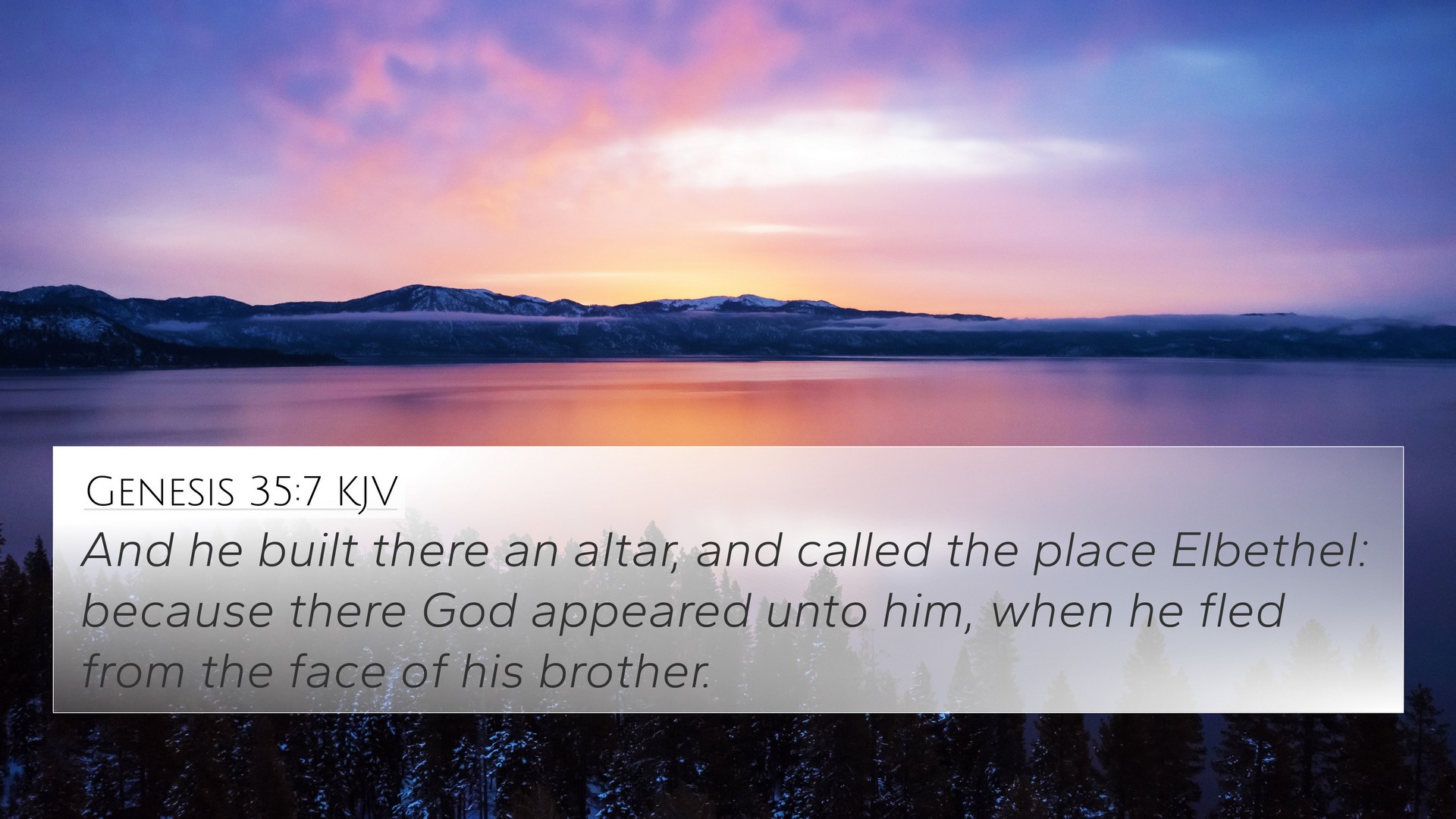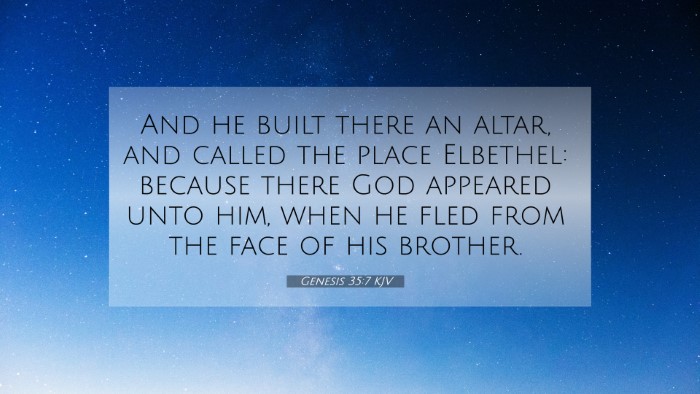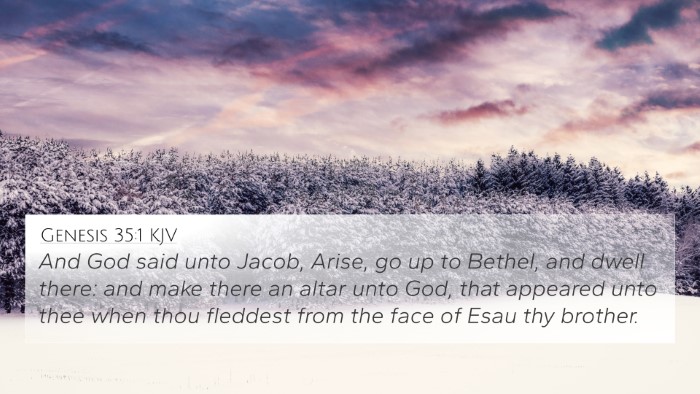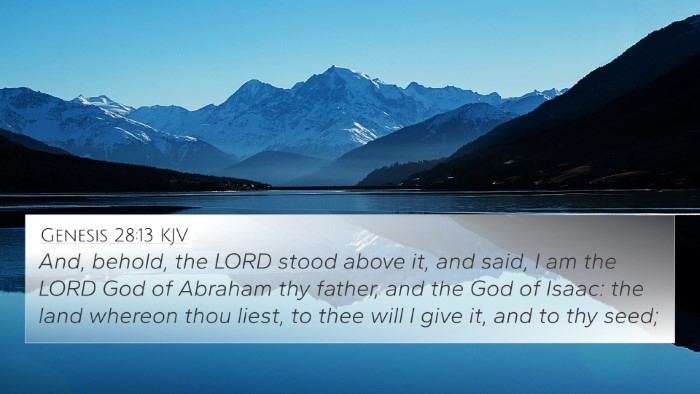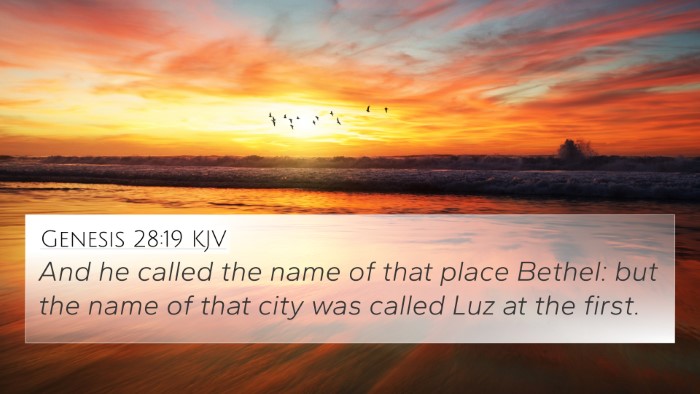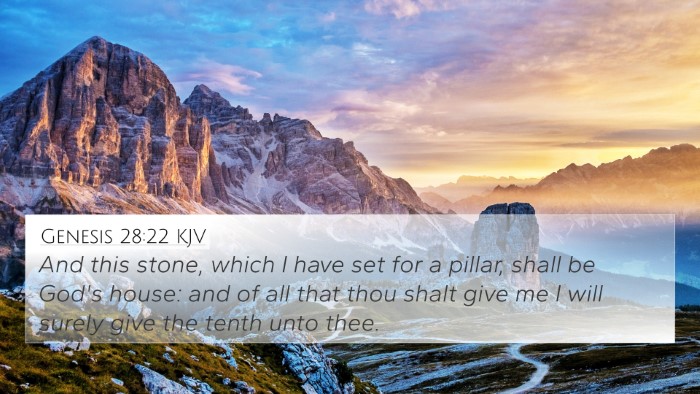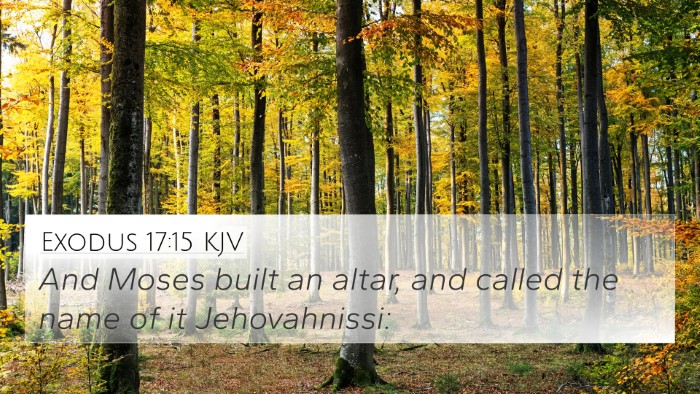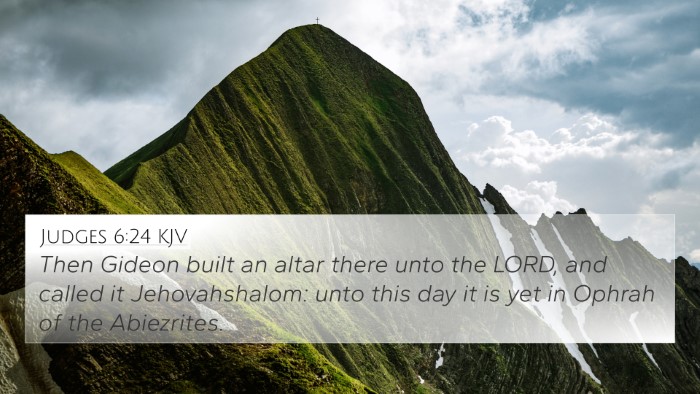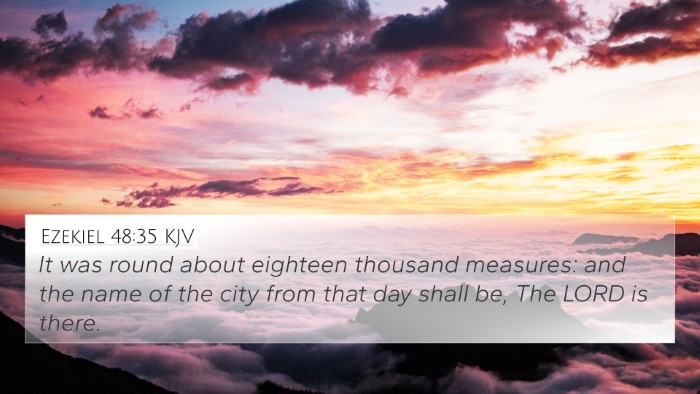Understanding Genesis 35:7
Genesis 35:7 states, "And he built an altar there, and called the place Elbethel: because there God appeared unto him, when he fled from the face of his brother."
This verse holds significant meaning within its context and is enriched by various public domain commentaries.
Verse Meaning Overview
In this verse, Jacob, after returning to his homeland, builds an altar to commemorate a pivotal moment in his life:
God's previous appearance to him while he was fleeing from Esau. This moment signifies God's faithfulness and the importance of worship.
Commentary Insights
Matthew Henry's Commentary:
Henry emphasizes the importance of the altar as a symbol of worship and covenant. Jacob's action of naming the place Elbethel illustrates
his recognition of God’s presence and the continuity of revelation he received; it signifies a reconnection with God's heritage.
Albert Barnes' Notes:
Barnes highlights the significance of the name “Elbethel,” meaning “God of Bethel,” noting that it reflects Jacob's profound
experiences at this location. He links this act to Jacob’s promise of future devotion to God, reinforcing the theme of covenant.
Adam Clarke's Commentary:
Clarke elaborates on Jacob’s motivations in this act of worship, suggesting that it's a response to God's past faithfulness.
He notes that Jacob names the altar, indicating a personal interaction with God and a reaffirmation of his faith journey.
Cross-References to Genesis 35:7
Genesis 35:7 is connected to several other Bible verses that illustrate similar themes of covenant, presence, and worship:
- Genesis 28:10-22: Jacob's first encounter with God at Bethel, where the ladder to heaven is revealed.
- Genesis 32:24-30: Jacob wrestling with God and receiving a new name, signifying transformation.
- Genesis 29:1: Jacob's journey to Haran, setting the stage for his experiences with God.
- Exodus 3:5: God's command to Moses to remove his sandals, as the ground is holy, paralleling the reverence required in worship.
- Joshua 24:26: The reaffirmation of covenant commitments made to God by Israel.
- 1 Samuel 7:12: The stones of remembrance as symbols of God's help and faithfulness.
- Hebrews 11:21: Mention of the faith of Jacob in his blessings, connecting to the legacy of worship.
Thematic Connections
Genesis 35:7 encapsulates themes of divine presence, worship, and the importance of altars as places of remembrance and
covenant. These themes resonate throughout the Bible, connecting both the Old and New Testaments.
Connecting the Old and New Testament
The act of building an altar and dedicating it to God demonstrates a continuity of worship practices seen later in the New Testament.
Just as Jacob recognized God’s presence, believers today are called to identify and honor God's activity in their lives.
Tools for Bible Cross-Referencing
To conduct a cross-reference Bible study, consider using various resources such as a Bible concordance or
a dedicated Bible cross-reference guide. These tools aid in discovering the intricate web of connections between verses.
Exploring Cross-Referencing Methods
- Identifying Connections: Use a concordance to trace terms or themes.
- Bible Chain References: Follow links provided in study Bibles that connect related verses.
- Comparative Studies: Analyze similar themes as found in different books of the Bible, such as the parallels
between the Gospels and the Old Testament.
Conclusion
Genesis 35:7 serves as a powerful reminder of the importance of recognizing and commemorating God’s presence and faithfulness throughout life's journey.
By understanding this verse and its connections through cross-referencing, believers can deepen their faith and enhance their study of scripture.
